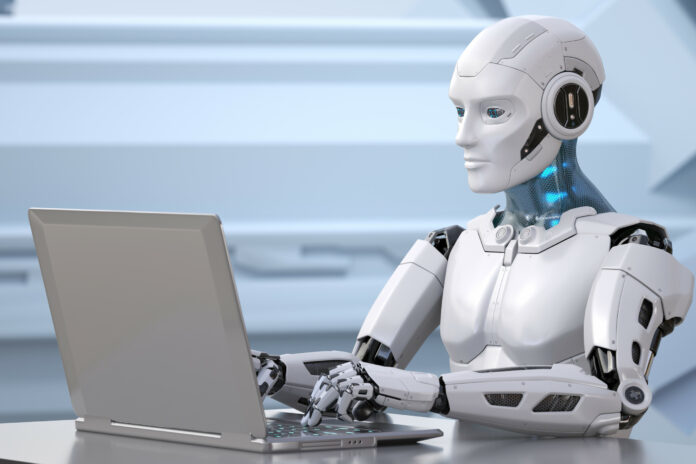In recent years, the advancement of artificial intelligence (AI) has become a double-edged sword, promising remarkable progress while simultaneously posing significant risks. While discussions around AI often focus on its potential to automate manual labor, there’s another looming threat that demands attention: the impact on white-collar workers. As AI continues to evolve, it poses a substantial risk to professions traditionally considered safe from automation.
White-collar workers, including professionals in fields such as finance, law, accounting, and data analysis, have long enjoyed a sense of security in their roles. Unlike blue-collar workers whose jobs are often repetitive and manual, white-collar professions have historically relied on complex decision-making, critical thinking, and nuanced problem-solving — tasks assumed to be beyond the reach of AI. However, recent advancements in machine learning, natural language processing, and robotics have shattered this assumption.
One significant risk posed by AI to white-collar workers is the automation of routine tasks. Many white-collar jobs involve repetitive, rule-based tasks that are ripe for automation. For example, AI algorithms can now sift through vast amounts of data to identify patterns, perform basic legal research, draft routine contracts, and even conduct financial analysis. As these capabilities improve, the need for human intervention diminishes, putting traditional white-collar jobs at risk of displacement.
A Tool, Not A Threat
The preceding three paragraphs highlight both the potential and possible threats AI delivers to the modern workplace. These paragraphs were the output from ChatGPT 3.5 following the prompt “Write a 1000-word article on the risk of AI to white-collar workers.” ChatGPT was able to write the article in less than a minute, with near-perfect grammar and support for all its positions.
I thought having AI write an article about the threat of AI was incredibly clever, kind of like when my nephew was asked to write a story using all his spelling words in fourth grade. His story consisted of “Once upon a time, a boy entered a spelling bee. The words were (lists his words). The End.” Much like my nephew’s teacher, Newsweek Expert Forum editors rejected my submission, stating “our guidelines prohibit AI-generated content …” and “It would need to be reworked so that it includes your unique voice and perspective.”
I knew the chances of the article being approved as submitted were slim, and I find it encouraging that such a policy is in place. The truth is, the rest of the AI-generated content, while accurate and well-written, was incredibly dull and failed to draw any meaningful conclusions. And this is why I don’t immediately fear an AI dislocation. AI is a powerful tool, but that is all it is at this point.
Stop Ringing Those Alarm Bells
Economic history is filled with prophecies of societal collapse resulting from technological advancements. In the late 1800s, many worried that the mechanization of the farm and the “industrial revolution” would put most of society out of work and lead to social collapse. We now know that the opposite was true. Industrialization released efficiencies and quality-of-life improvements unimaginable at the turn of the 20th century. St. Louis Fed data shows per capita GDP at $858 in 1929; by 2023, US per capita GDP was $81,614.
And keep in mind, the earliest data above was based on a six-day work week. It wasn’t until the Fair Labor Standards Act of 1938 that the five-day workweek became law. The current numbers do reflect inflation, but even adjusted for inflation, economic output per capita has increased nearly 450% since 1947, long after the greatest gains from industrialization.
Some of the risks my AI chatbot friend identified were “the potential for AI to augment human capabilities to such an extent that it renders certain professions obsolete … AI algorithms can analyze medical images, interpret patient data, and even assist in treatment recommendations. In the legal sector, AI-powered platforms can review documents, predict case outcomes, and even provide legal advice.”
While these possibilities do exist — and thus, risks to these professions — I’m optimistic. One of our greatest human assets is our ability to adapt and improve. I see AI as a tool, much like the electric calculator. The calculator did not replace the engineer, it only made him or her more efficient. Time spent double-checking calculations can now be spent on improving designs and increasing efficiencies. AI promises these types of improvements on steroids across virtually every industry and profession.
What AI Really Means For Our Future
Perhaps the greatest AI policy question will be how society will benefit from the productivity advances AI promises. Will Big Tech try to hoard the benefits to monetize them? Will highly educated professionals resist the benefits of improved medical outcomes and greater efficiencies in the name of self-preservation? Perhaps productivity increases will be enough to add another day to the weekend. After all, several studies and pilot programs are already showing benefits from a four-day workweek.
Regardless of how these questions are ultimately answered, the greatest threat from AI is not the technology itself, but how we as humans choose to react to and utilize it.
Uncommon Knowledge
Newsweek is committed to challenging conventional wisdom and finding connections in the search for common ground.
Newsweek is committed to challenging conventional wisdom and finding connections in the search for common ground.


